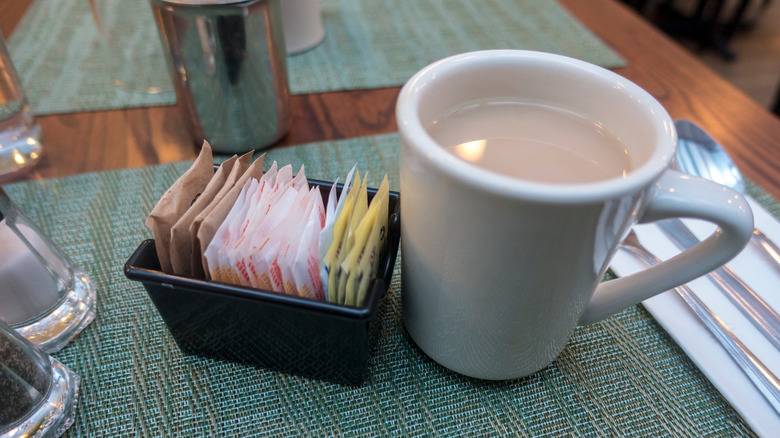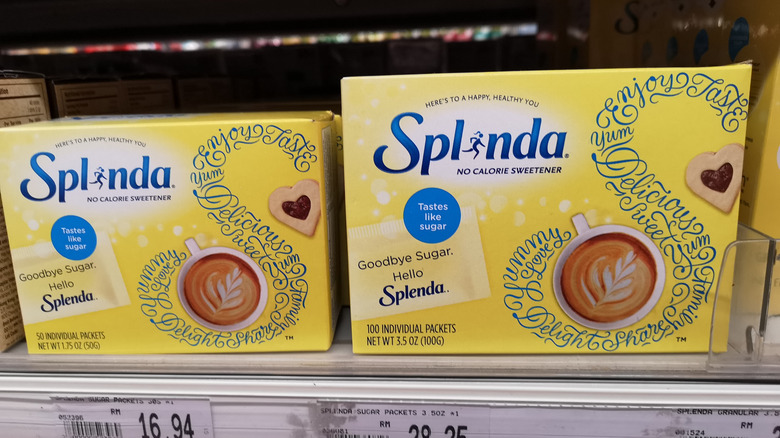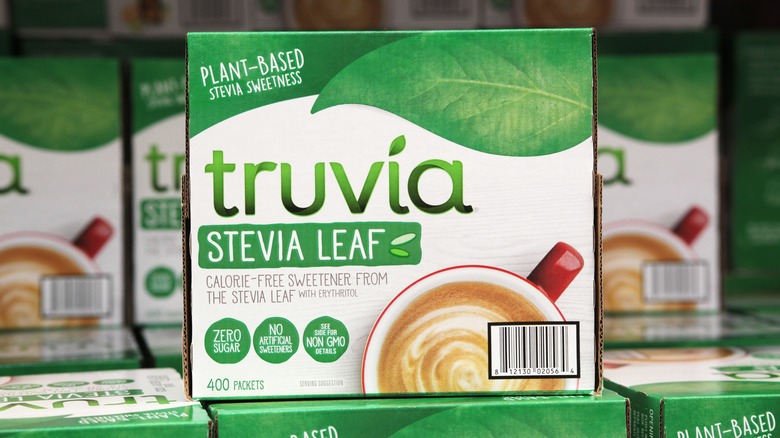Splenda Versus Truvia : Which Sugar Substitute Is Better For You?
For those with a sweet tooth, adding sugar to their coffee every morning and consuming sweet treats can taste like heaven; but how much sugar should we really be having in our diet?
First, let's take a closer look at where sugar comes from. Sucrose, the chemical name of sugar, is made by plants during photosynthesis, as illustrated by The Sugar Association. During this process, water and minerals are collected from the earth by plants before they absorb carbon dioxide from the air. As sunlight shines on the leaves of a plant, chlorophyll absorbs its energy and creates sucrose from the water and carbon dioxide that was gathered. Fruits, vegetables, and nuts all naturally contain sucrose.
Sugar is used as an added ingredient in desserts, sweetened beverages, snacks, breakfast cereals, and processed and prepared foods. With sugar being available everywhere you turn, it comes as no surprise that it's widely consumed, and is frequently over-consumed. Although the American Heart Association (AHA) recommends that added sugar intake doesn't exceed about 6 teaspoons per day for women and 9 teaspoons a day for men, the average American consumes approximately 17 teaspoons of added sugar each day, per the Harvard T.H. Chan School of Public Health. Excess consumption of sugar can contribute to high blood pressure, heart disease, diabetes, and other health conditions.
Splenda and Truvia are two sugar substitutes that claim to be healthier than sugar. Which one of these popular alternative options is better for your health?
Are Splenda sugar substitutes healthy?
Splenda is likely something you've passed by at the grocery store while picking up your essentials for the week. According to the Splenda website, regular sugar was converted into a low-calorie sweetener by replacing three hydrogen-oxygen groups with three chlorine atoms, resulting in a compound called sucralose, also known by the brand name Splenda. The taste of Splenda may be favored by some people over other artificial sweeteners like Sweet'N Low and Equal due to it being made from real sugar (per Nourish by WebMD). While Splenda contains almost no calories, it is also 600 times sweeter than regular sugar.
There's no doubt that Splenda is popular, but is it good for you? After reviewing over 110 safety studies on Splenda, the U.S. Food and Drug Administration (FDA) approved the sugar substitute in 1999 as a general-purpose sweetener for foods. Both positive and negative findings have been reported on Splenda since then. Some unfavorable findings suggest that sucralose may reduce the number of good bacteria in the gut microbiome, as reported by Nourish by WebMD. In studies conducted on rodents, the artificial sweetener was also found to contribute to inflammation in the body. However, further research needs to be conducted on humans to validate these results.
You may be wondering what the difference is between Splenda and Truvia, one of its popular competitors. If you had to substitute for sugar with one of these products, which one should you choose? Let's take a closer look and find out.
How do Truvia sweeteners compare to Splenda?
Truvia is a more recent member of the artificial sweetener family as it was introduced in 2008, according to Healthline. It contains a sugar alcohol named erythritol, a compound from the stevia plant named rebaudioside A, and natural flavors. Truvia is marketed as having plant-based stevia sweetness from the stevia leaf. In reality, it contains few components of the stevia plant, which is important to note as it can reduce Truvia's reliability.
One of Truvia's ingredients, erythritol, has been scrutinized by some researchers, and there's been some evidence to suggest it may not be as healthy as advertised. A 2014 study published in PLOS One discovered that consuming erythritol was toxic to fruit flies and decreased their longevity compared to other sweeteners, like sugar and corn syrup.
Another study, published in Nature Medicine in 2023, observed a connection between erythritol and an increased risk of cardiovascular issues like blood clots, heart attack, and stroke. However, according to U.S. News & World Report, other experts stress that more research needs to be done before condemning erythritol completely.
Whether to choose Splenda or Truvia as a sugar substitute ultimately comes down to personal preference. However, any artificial sweetener should be taken in moderation as they have the potential to be addictive in the same way as sugar, Kate Patton, a registered dietitian, told Cleveland Clinic.



